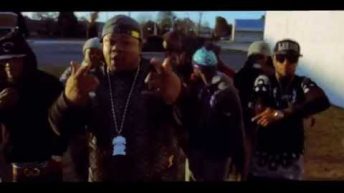HB 4654 would remove liability protections for educators deemed to have exposed children to “obscene” material
As Republicans nationwide continue to sound the alarm about how children are supposedly being indoctrinated and “groomed” into adopting LGBTQ identities at school, West Virginia legislators are pushing a new kind of crackdown on books deemed “obscene.” The idea is as simple as it is chilling: make librarians and teachers criminally liable for providing such material to kids.
House Bill 4654, introduced by Republican Delegate Brandon Steele, passed in the West Virginia House of Delegates on Friday by a vote of 85-12 and now heads to the state Senate. (The “nays” included all 11 Democrats in the House.) Rather than establishing a new law, HB 4654 would simply strike the first two exemptions to an existing code prohibiting the “preparation, distribution, or exhibition of obscene matter to minors.” These include any “bona fide school” presenting the content as part of a “local or state approved curriculum,” as well as any “public library, or museum, which is displaying or distributing any obscene matter to a minor only when the minor was accompanied by his or her parent.”
Passed (85-12) – HB 4654 – Removing bona fide schools, public libraries, and museums from the list of exemptions from criminal liability relating to distribution and display to minor of obscene matter – https://t.co/t6JnTpbkSJ
— WV House (@wvhouse) February 16, 2024
Steele argued in the chamber ahead of the vote that removing those protections against criminal liability for teachers, librarians, and other educators is crucial to children’s safety. “I’m here to protect our young people and make sure they are not put in a vulnerable position where they are presented with pure pornography in an effort to groom them and prepare them for a potential sexual abuse or sexual assault,” he said. Tony Hodge, co-chair of the West Virginia GOP, warned that opponents of the bill “want obscene material available to children.”
The debate on HB 4654 in House Judiciary has been fascinating. There are those who want obscene material available to children and there are those who want to protect children from obscene material. Protecting children will always be the right side of history.
— Tony M. Hodge (@TonyMHodge) February 12, 2024
But the bill’s detractors say it’s a clear attempt to purge books and information that may challenge strict conservative values from institutions of learning. The American Civil Liberties Union of West Virginia noted that fearmongering about “pedophile librarians” brought HB 4654 out of committee and onto the House floor. “The bill is designed to create confusion for educators about what kinds of materials can be taught or displayed,” the nonprofit chapter posted last week on X (formerly Twitter). It also accused proponents of using examples of allegedly criminal content that did not meet the definition of obscenity.
Editor’s picks
Throughout the hearing, proponents told on themselves repeatedly. They insisted 4654 is only about stopping adults from showing obscene materials to kids, but continuously referred to materials that do not meet the definition of obscenity as examples of why the bill is needed.
— ACLU of WV (@ACLU_WV) February 12, 2024
In the West Virginia criminal code, “obscenity” is — as elsewhere — broadly described. It includes matter “intended to appeal to the prurient interest,” or that an “average person, applying community standards, would find depicts or describes, in a patently offensive way, sexually explicit conduct,” or that a “reasonable person would find, taken as a whole, lacks serious literary, artistic, political or scientific value.” Such wide-ranging definitions have been key to lawsuits attempting to restrict the availability of books about gender and sexual identity.
For that reason, critics of HB 4654 have also labeled it a de facto book ban. Educators fearful of a felony charge along with a fine of up to $25,000 and a potential five-year jail sentence may may remove any potentially offending content from bookshelves to avoid become a target in these vicious culture wars. Needless to say, plenty of canonical literature that has been taught for generations also features scenes of mature intimacy — it’s hard to say where prosecutors might daw a line.
Yet, as statehouse columnist Phil Kabler of the Charlotte Gazette-Mail reported on Friday, delegates making this case against HB 4654 were formally prevented from calling it a book ban in debate.
Through a point of order, delegates speaking against HB 4654, criminalizing distribution of materials to minors that some find offensive, are not allowed to refer to it as banning books.
— Phil Kabler (@PhilKabler) February 16, 2024
West Virginia is just the latest of many states to consider measures opening schools and libraries to criminal prosecution over contested books. Tennessee, Arkansas, Oklahoma, Missouri, and Indiana have already enacted such laws. The Biden administration in September named Matt Nosanchuk to U.S. Department of Education’s Office for Civil Rights as an “anti-book ban” czar overseeing efforts to beat back this kind of legislation, but for the moment, the censorship crowd remains on the offensive.
Trending






